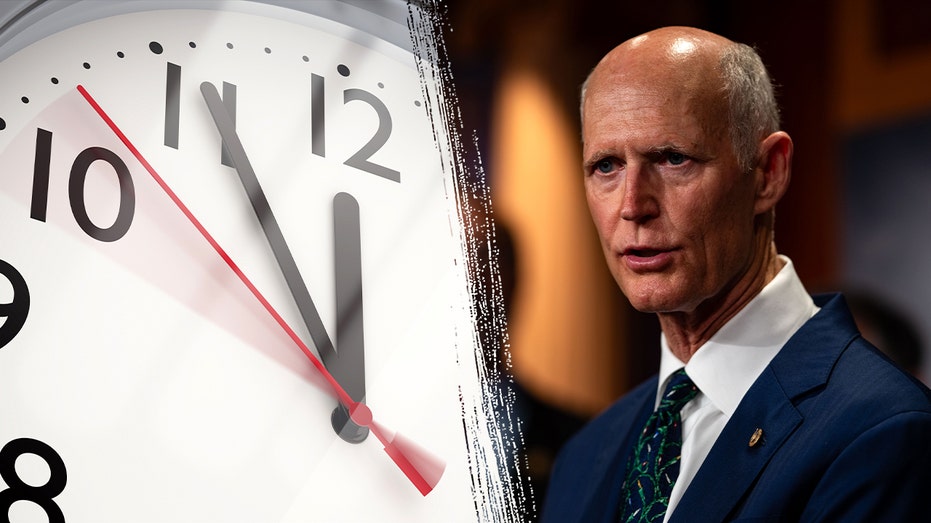Daylight Saving Time Drama: Congress, the 'Time Lords,' Keep Us Guessing

Sarah Johnson
March 9, 2025
Brief
Congress and the President control Daylight Saving Time in the U.S., sparking ongoing debates over biannual clock changes, historical context, and new legislative efforts to end the practice.
We live in time. We make it, lose it, and sometimes run out of it. But when it comes to controlling time—literally—it’s Congress and the President who hold the reins. And this weekend, as we spring forward into Daylight Saving Time, you have them to thank for your lost hour of sleep. Or blame, depending on how much you value your snooze button.
The power to dictate time is rooted in Article I, Section 8 of the Constitution, which grants Congress authority to "fix the Standard of Weights and Measures." In its long history of time meddling, Congress established time zones in the 1880s to aid railroads and later formalized Daylight Saving Time with the Uniform Time Act of 1966. Before that? Chaos. Imagine 144 different local times across the U.S.—even Minneapolis and St. Paul, separated only by the Mississippi River, couldn’t agree on the hour. Organized much?
Fast forward to today, and lawmakers are still debating whether it’s time to ditch the biannual clock changes. Representative Rich McCormick, R-Ga., put it bluntly: "I haven't had anybody come to me and say, ‘This is something that benefits our society.’ Why do we have it around anymore?" Fair point. If something doesn’t spark joy, maybe Marie Kondo it out of existence.
Florida lawmakers are particularly fired up about this. Given their status as the Sunshine State, it makes sense. Rep. Vern Buchanan, R-Fla., emphasized how longer evenings benefit tourism: "Instead of getting dark at 5:39, it gets dark at 6:30. It makes a big difference." After all, who wants to eat dinner outdoors in pitch black when you can bask in the glow of an extra hour of sunlight?
Senator Rick Scott, R-Fla., has taken this crusade to the national level, proposing legislation to "lock the clock" and stop the semi-annual time shuffle. His previous attempts, along with those of Senator Marco Rubio, R-Fla., which even saw unanimous Senate approval in 2022, ultimately stalled in the House. Turns out, even time can’t escape Washington gridlock.
Historically, shifting the clocks has been tied to crises. President Woodrow Wilson’s administration adopted Daylight Saving Time during World War I, only for Congress to repeal it over his veto—one of just 112 successful veto overrides in U.S. history. Franklin D. Roosevelt and Richard Nixon also used executive orders to adjust time during World War II and the 1970s energy crisis, respectively. So, yes, presidents have literally tried to bend time to their will.
Even former President Donald Trump waded into the time-change debate, criticizing it as "inconvenient and very costly to our Nation." But when asked recently if he’d push for reform, he admitted it’s a "50/50 issue"—hardly the stuff of consensus.
For most Americans, the issue boils down to this: no one likes changing the clocks, but the alternatives aren’t perfect either. Winter evenings would get darker too early for some, while summer mornings might start absurdly late. It’s all relative, depending on where you live.
Senator Andy Kim, D-N.J., sees an opportunity for bipartisan unity in abolishing the time switch, joking that it might be the one thing Americans can actually agree on these days. Meanwhile, House Minority Leader Hakeem Jeffries, D-N.Y., brushed off the subject entirely, quipping, "There’s a lot going on in the United States of America. I haven’t been able to give a thought to daylight savings." Priorities, people.
As Shakespeare once wrote, "What is past is prologue." So, despite legislative attempts to fix time once and for all, it’s likely we’ll all be fiddling with our clocks again come October. Time marches on—whether we like it or not.
Topics
Editor's Comments
Honestly, the fact that Congress has been acting like 'Time Lords' since the 1800s is both hilarious and slightly terrifying. I mean, 144 local times in one country? That’s peak chaos. Also, can someone please explain why changing the clocks is still a 50/50 debate? It’s 2025—surely we can agree on at least one thing. Or maybe not—this is America, after all.
Like this article? Share it with your friends!
If you find this article interesting, feel free to share it with your friends!
Thank you for your support! Sharing is the greatest encouragement for us.



